This article contains information about the literary events and publications of 1870.
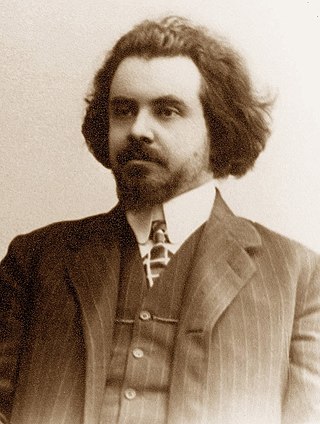
Nikolai Alexandrovich Berdyaev was a Russian philosopher, theologian, and Christian existentialist who emphasized the existential spiritual significance of human freedom and the human person. Alternative historical spellings of his surname in English include "Berdiaev" and "Berdiaeff", and of his given name "Nicolas" and "Nicholas".

Mikhail Naumovich Epstein is a Russian-American literary scholar, essayist, and cultural theorist best known for his contributions to the study of Russian postmodernism. He is the Emeritus S. C. Dobbs Professor of Cultural Theory and Russian Literature at Emory University, Atlanta, Georgia. His writings encompass Russian literature and intellectual history, the philosophy of religion, the creation of new ideas in the age of electronic media, semiotics, and interdisciplinary approaches in the humanities. His works have been translated into over 26 languages.

PeterBerngardovich Struve was a Russian political economist, philosopher, historian and editor. He started his career as a Marxist, later became a liberal and after the Bolshevik Revolution, joined the White movement. From 1920, he lived in exile in Paris, where he was a prominent critic of Russian communism.

Sergey Timofeyevich Aksakov was a 19th-century Russian literary figure remembered for his semi-autobiographical tales of family life, as well as his books on hunting and fishing.
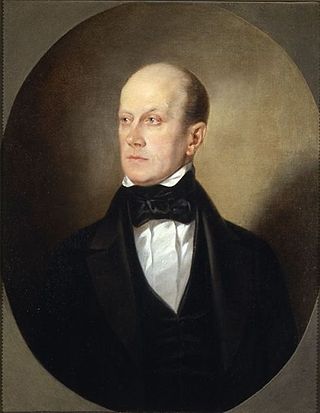
Pyotr or Petr Yakovlevich Chaadayev was a Russian philosopher. He was one of the Russian Schellingians.
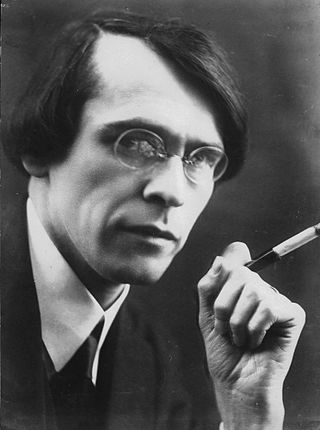
Vladislav Felitsianovich Khodasevich was an influential Russian poet and literary critic who presided over the Berlin circle of Russian emigre litterateurs.
Boris Mikhailovich Eikhenbaum was a Russian Empire and Soviet literary scholar and historian of Russian literature. He is a representative of Russian formalism.

David Petrovich Shterenberg was a Ukrainian-born Russian Soviet painter and graphic artist.

Semyon Lyudvigovich Frank was a Russian philosopher. Born into a Jewish family, he became an Orthodox Christian in 1912. In 1922 he was expelled from Soviet Russia and lived in Berlin. In 1933 he was replaced as head of the Russian Scientific Institute. In 1945, he moved to Britain.
Vekhi is a collection of seven essays published in Russia in 1909. It was distributed in five editions and elicited over two hundred published rejoinders in two years. The volume reappraising the Russian intelligentsia was a brainchild of the literary historian Mikhail Gershenzon, who edited it and wrote the introduction.

The Russian Messenger or Russian Herald has been the title of three magazines published in Russia during the 19th century and early 20th century.

Platon Mikhailovich Kerzhentsev, was a Soviet state and party official, revolutionary, diplomat, journalist, historian, playwright and theatre and arts theorist who was involved with the Proletkult movement.
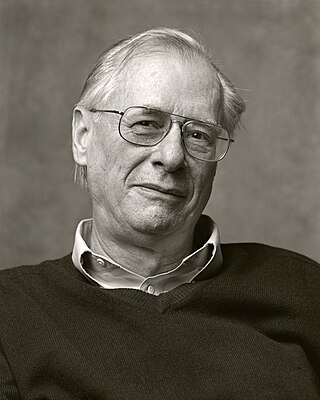
William Craft Brumfield is a contemporary American historian of Russian architecture, a preservationist and an architectural photographer. Brumfield is currently Professor of Slavic studies at Tulane University.
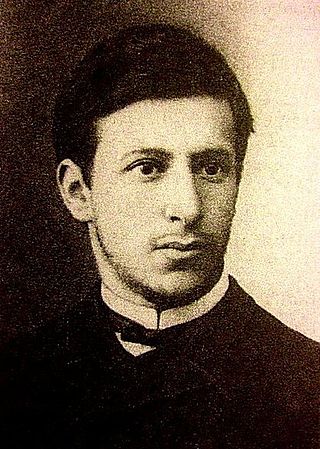
Mikhail Rafailovich Gots was a Russian revolutionary, member of 'The People's Will' and one of the founders of the Socialist-Revolutionary Party (PSR). He was the older brother of Avram Gots.

Pyotr Alexandrovich Yefremov was a Russian literary historian, publisher, editor and essayist whose works were published regularly by Sovremennik, Otechestvennye Zapiski, Russky Arkhiv, Russkaya Starina, Istorichesky Vestnik, newspapers Golos, Novoye Vremya, Russkiye Vedomosti. In 1864-1865 he edited the Knizhny Vestnik magazine. Praised as one of the most competent literary scholars of the 19th century, Pyotr Yefremov compiled, edited and published the series of The Works of: Denis Fonvizin (1866), Valerian Maykov (1867), Antiochus Kantemir (1867-1868), Vladimir Lukin (1868), Bogdan Yelchaninov (1868), Alexander Radishchev, Kondraty Ryleyev, Mikhail Lermontov, Vasily Zhukovsky, Alexander Pushkin, Alexander Polezhayev (1889). He is credited with having discovered, published and written analytical essays on numerous hitherto unknown autographs by classics like Pushkin, Ryleyev, Lermontov, Radishchev, Fonvizin, Zhukovsky.

Pyotr Petrovich Pertsov was a Russian poet, publisher, editor, literary critic, journalist and memoirist associated with the Russian Symbolist movement.
Mikhail Izrailevich Armalinsky is a Russian poet, writer, blogger, and publisher of erotica. He caused scandal and outrage within Russian literary circles, following publication in 1986 of a pornographically toned diary, ostensibly by Alexander Pushkin. This led to him being described as "The Pushkin pornographer".
The Inevitable Revolution is an essay written by Leo Tolstoy on July 5, 1909 about abolishing the law of violence and replacing it with the law of love. It is generally considered a text on civil disobedience, pacifism, and anarchism, and it is Tolstoy's last non-fiction work detailing his final opinions on political, economic, and religious issues.
Vekhovstvo (vekhovtsy) was a philosophical and socio–political trend in the Russian intellectual environment at the beginning of the 20th century that received its name from the programmatic collection Vekhi (1909). The initiator of the publication of Vekhi was Mikhail Gershenzon.














